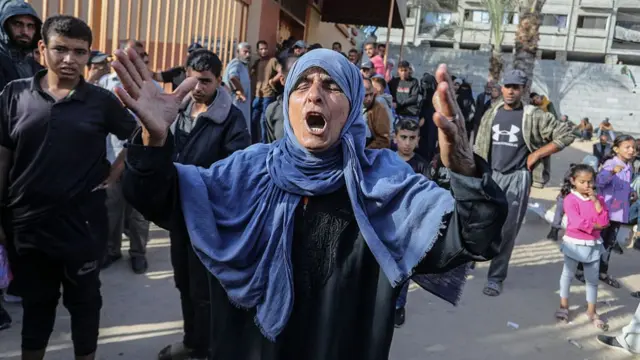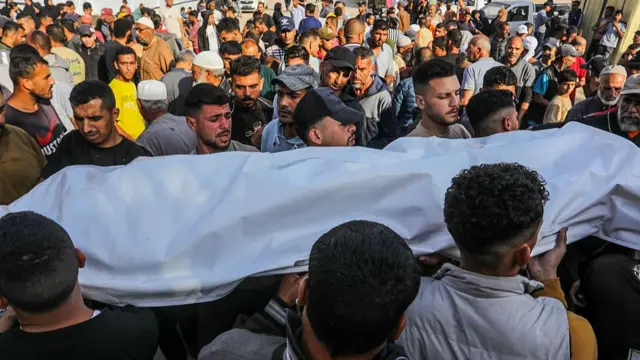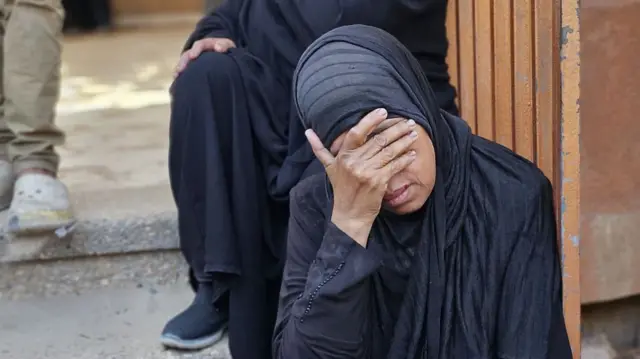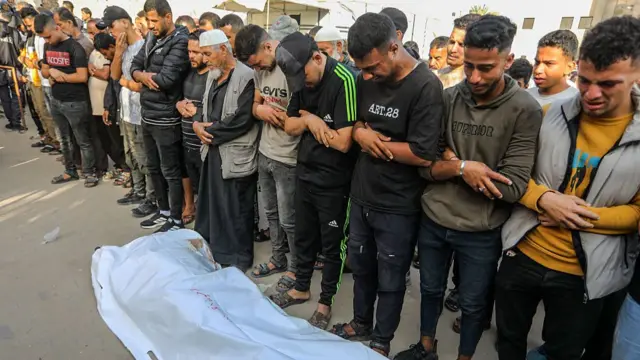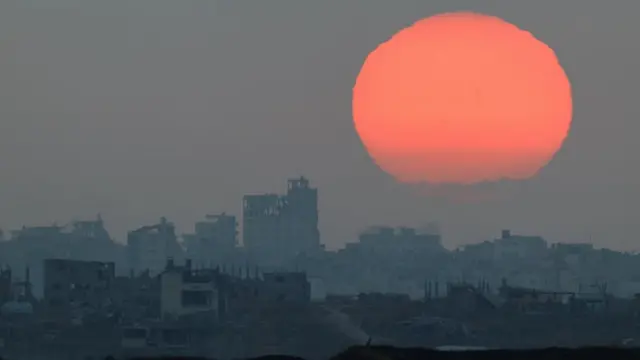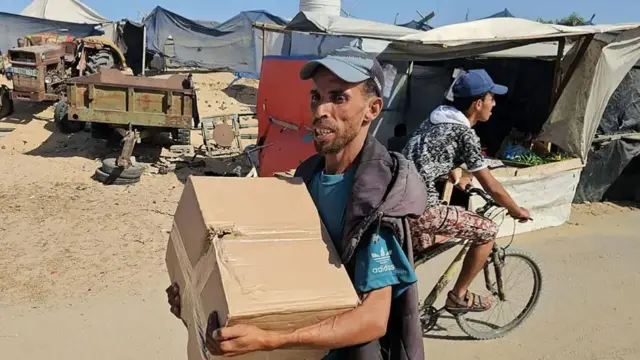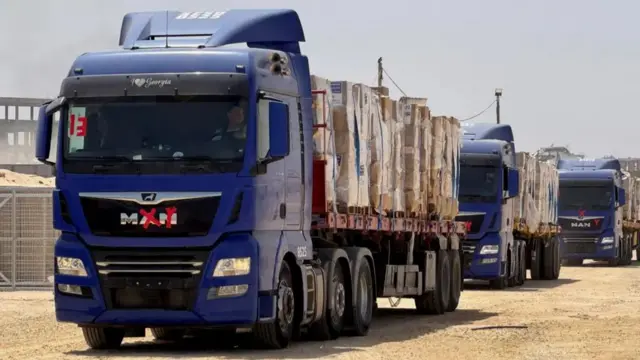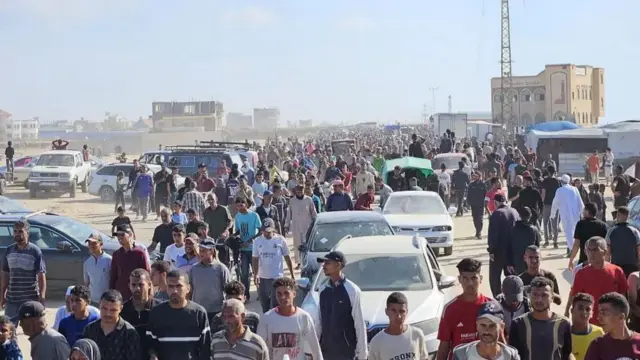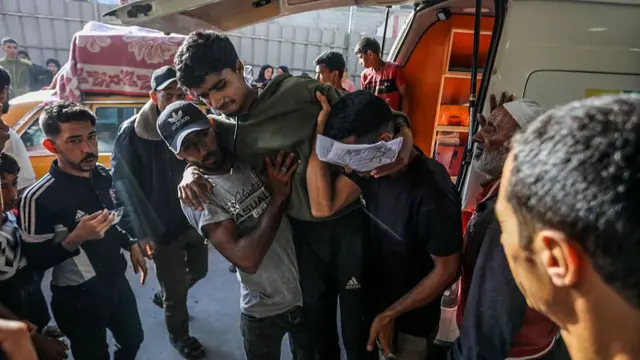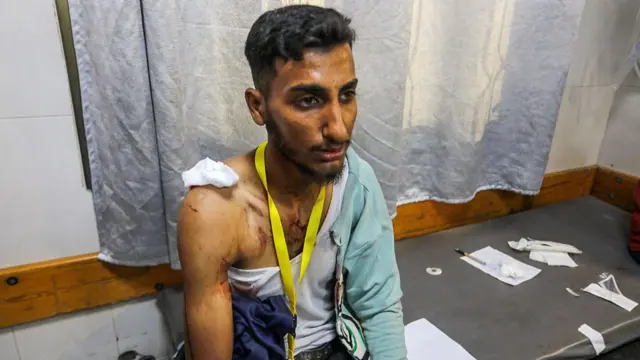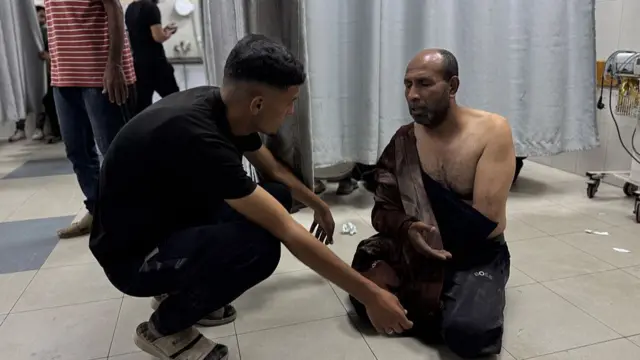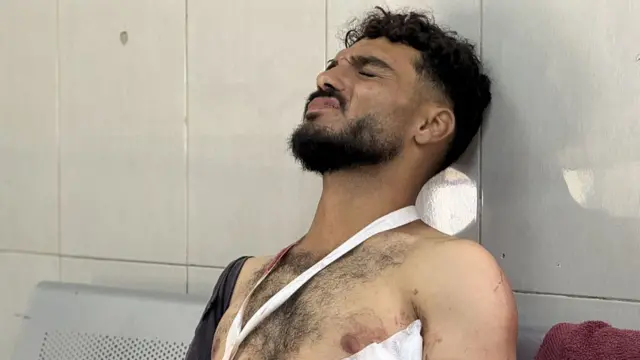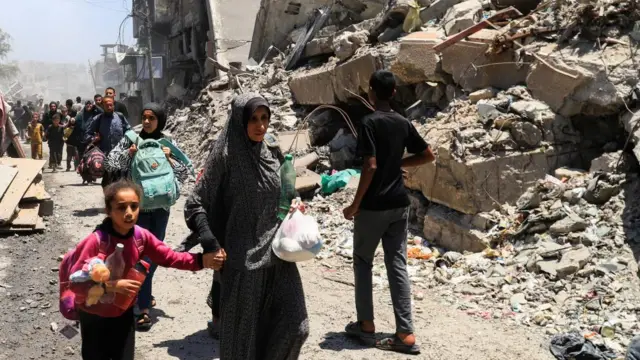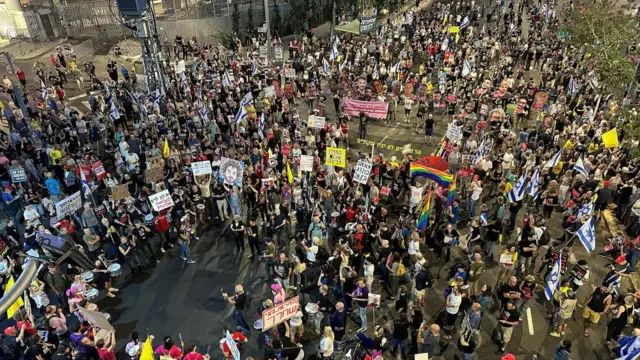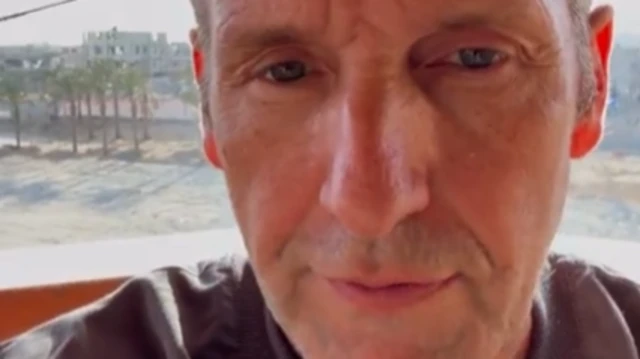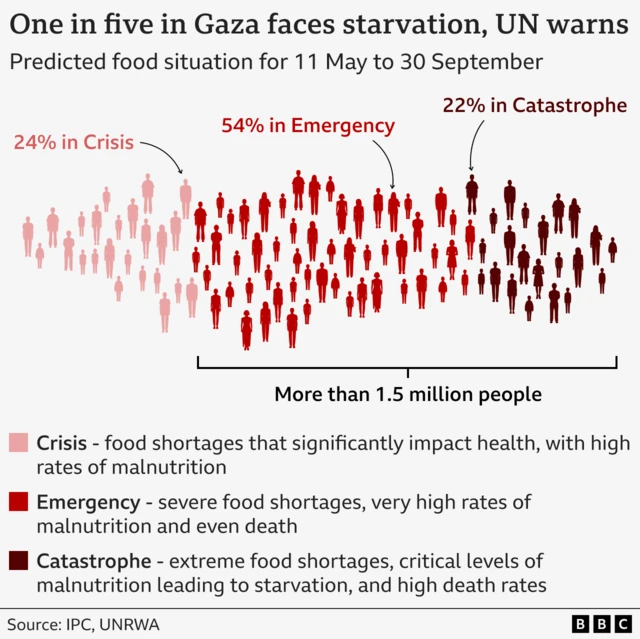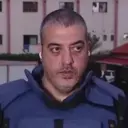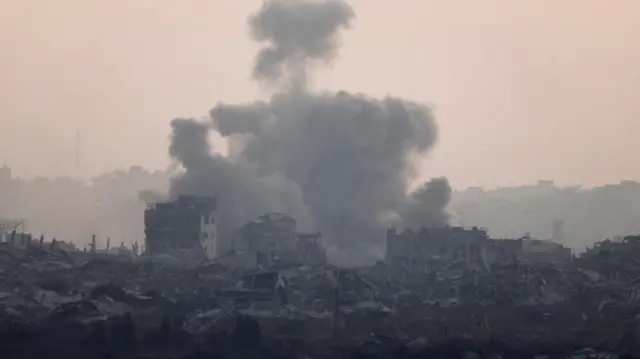Twenty-three bodies moved from aid point, Palestinian Red Crescent sayspublished at 10:09 BST 1 June
We've just received an update from the Palestinian Red Crescent, in which they say their teams have transported 23 fatalities and 23 injured people from the aid distribution point in Rafah.
In addition, the Palestinian Red Crescent says it has also moved 14 injured people from an aid distribution point near the Netzarim Corridor in central Gaza.
Earlier, rescuers reported that at least 26 people have been killed amid Israeli tank fire near a Gaza aid centre, near Rafah.
We'll bring you the latest updates on the total number of fatalities as we get it.
